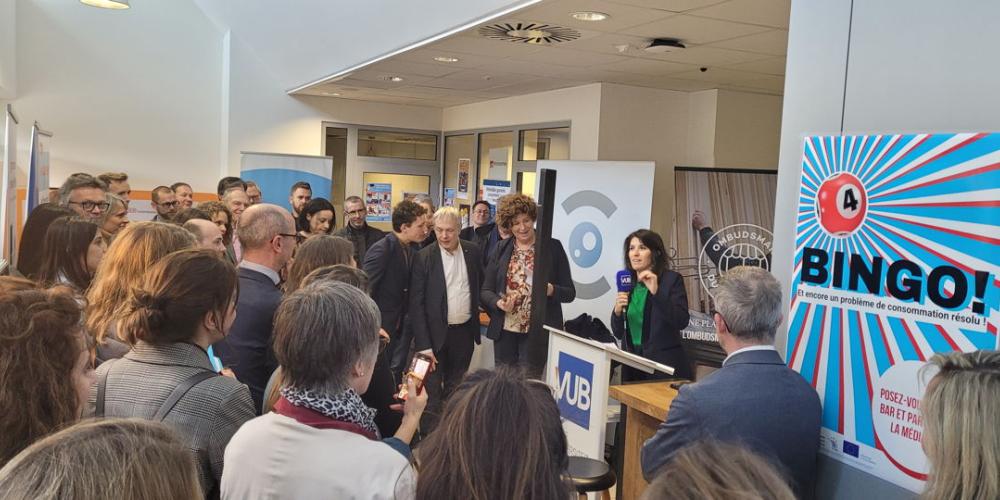
Ahead of International Day of the Consumer on 15 March, secretary of state for consumer protection Alexia Bertrand kicked off a week of events at VUB highlighting consumer rights. Young people today are often inundated with information and offers, but they don’t always have the necessary information that allows them to make conscious and safe choices. By making them aware of the dangers and their basic rights, Bertrand and VUB aim to change this.
Many consumers, especially young people, don’t always know their rights or believe it will be difficult to exercise them, especially after impulsive online purchases. People also often assume their purchases are secure, but this isn’t always the case. In 2022, Belgium’s Economic Inspectorate hotline received 51,874 reports of scams or attempted scams. That’s an increase of 8% on the previous year, when there were 47,917 reports. The most common scams were phishing, sales and purchase fraud and phantom invoices, but there are also problems in delivering products and services and getting accurate information. Bernard points to the rising number of online transactions as the reason for the increase.
“Anyone scrolling on their phone for a few minutes will soon be overwhelmed by ads and offers,” she says. “In addition, phishers are also constantly lurking. So anyone who isn’t careful could fall into a phisher’s trap or make an impulse purchase that wasn’t really necessary or, in hindsight, doesn’t meet expectations at all.”
Bertrand wants consumers to know what to look out for to avoid problems with their purchase, and to know where they can go for help if something goes wrong. Informing the consumer is central to all her policies.
From student to critical consumer
VUB rector Jan Danckaert explains why the university is opening its doors to this worthwhile initiative. “There are more than 16,000 students at our university. Our job is to nurture them with knowledge, understanding and insight to get a grip on the problems of today and tomorrow. Not every purchase goes smoothly. By making students aware of the potential dangers they face as consumers, and informing them of their basic rights if things go wrong, we help them develop into critical consumers.”
BE.COCO
Opening the week, Bertrand launched the BE.COCO concept. “Conscious consumption is good for our wallets, but also for our environment, for our economy and for the working conditions of everyone involved in our purchases,” she says. “Conscious buying is quite the opposite of impulse buying. That's nice in the short term, but sometimes more expensive in the long term. Products we buy on impulse from the other side of the world don’t always live up to the dreams they promise either. Sometimes they are even dangerous, just think of toxins in baby toys, face creams whose ingredients are not known or security cameras distributing images from our homes. Our own Belgian and European service providers and manufacturers are usually a better buy. That’s a win for everyone.”
The government, through its BE.COCO campaign, will increase its efforts to inform consumers in the coming months.